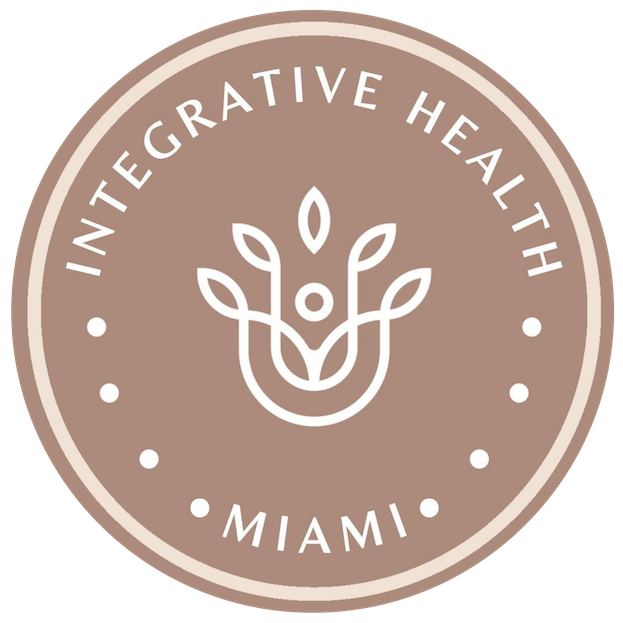Understanding pregnancy and maternity care inspires expectant mothers and their families to focus on prenatal, childbirth, and postnatal care. It emphasizes caring for maternal health, monitoring fetal growth, and preparing for a safe and smooth delivery. This knowledge supports adopting healthy routines, attending regular medical check-ups, and addressing potential concerns promptly. It also highlights the importance of emotional support and thoughtful decisions, helping mothers confidently navigate their pregnancy while fostering the well-being of both mother and baby for a healthy beginning to life.

At Integrative Health Miami, our dedicated healthcare team actively raises awareness about pregnancy and maternity care. We prioritize personalized support for expectant mothers and offer a comprehensive approach that includes prenatal education, nutritional guidance, and holistic therapies to support a healthy pregnancy. By promoting maternal well-being and addressing the unique needs of each pregnancy stage, we aim to partner with you for a safe and joyful experience.
Schedule Your Consultation Today
Call Integrative Health Miami at (305) 456-6026 Today!
What You Need to Know About Pregnancy and Maternity Care
Table of Contents
ToggleStages of Pregnancy
First Trimester (Weeks 1-12)
During the first trimester, the fertilized egg implants in the uterus and begins developing into an embryo. The placenta forms to nourish the baby, while major organs like the heart, brain, and spine start to develop. By week eight, the embryo becomes a fetus. Common symptoms include nausea, fatigue, and mood swings. Though the baby is still tiny, rapid development occurs. By the end of this stage, the fetus is about 3 inches long and weighs around 1 ounce.
Second Trimester (Weeks 13-26)
The second trimester, a period often more comfortable for the mother as early pregnancy symptoms subside, brings a sense of relief and comfort. The fetus grows quickly, developing facial features, functioning organs, and hearing capabilities. The mother typically begins to feel the baby move around week 18. The baby’s skeleton strengthens while fat stores develop. The uterus expands significantly, and physical changes like a visible belly and occasional back pain occur.
Third Trimester (Weeks 27-40)
In the third trimester, the fetus grows rapidly, gaining weight and maturing its lungs in preparation for birth. Movements become more defined, though space inside the womb is limited. The baby typically shifts into a head-down position. Mothers may experience increased back pain, swollen feet, and practice contractions (Braxton Hicks). Fatigue often returns as the body prepares for labor. It is the stage where the baby has reached full development, weighs around 6-9 pounds, and measures about 18-21 inches long.
Physical Changes During Pregnancy
Body Changes

During pregnancy, the body experiences remarkable changes to support the growing baby. The uterus expands, leading to a noticeable increase in abdominal size. Breasts become fuller and more sensitive as they get ready for breast milk production. Weight gain, swelling in the hands and feet, and skin changes such as stretch marks are natural parts of this journey. Hormonal and physical shifts may also bring back pain and fatigue, reflecting the body’s incredible adaptation to pregnancy.
Hormonal Changes
In order to sustain the pregnancy, hormones such as progesterone and estrogen rise. These changes help maintain the uterine lining, prepare the body for breastfeeding, and relax ligaments for childbirth. However, they can cause mood swings, nausea, and heartburn. Human chorionic gonadotropin (hCG) and relaxation also play roles in maintaining pregnancy and preparing for delivery.
Emotional Changes
Emotional fluctuations during pregnancy are common due to hormonal changes, physical discomfort, and the anticipation of parenthood. Expectant mothers may experience joy, fear, or even despair. Being supported by family members and medical professionals is essential for handling these feelings. Severe emotional changes may occasionally be a sign of prenatal anxiety or depression, necessitating medical attention.
Importance of Prenatal Care
Regular Check-Ups
Regular prenatal visits are not just a tradition; they are a crucial part of monitoring the health of both the mother and the unborn child.
Prenatal Vitamins
An essential component of pregnancy and maternity care is taking prenatal vitamins. By providing essential nutrients, including folic acid, iron, calcium, and DHA, they promote fetal growth and reduce the risk of congenital disabilities. Prenatal vitamins are a necessary supplement because it might be challenging to get enough of these nutrients from a typical diet. These supplements also benefit the mother’s health by compensating for the increased nutrient needs during pregnancy.
Healthy Diet and Exercise
For both mother and child, a well-balanced diet full of fruits, vegetables, healthy grains, and lean meats is essential. With a doctor’s approval, regular moderate exercise can help improve circulation, ease pregnancy-related discomforts, and get the body ready for delivery.
Avoiding Harmful Substances
Protect your baby’s growth by steering clear of chemicals such as alcohol, tobacco, and recreational drugs. These substances can contribute to complications like low birth weight and congenital issues. We recommend moderating caffeine intake and avoiding non-prescribed medications to support a healthy pregnancy.
Common Pregnancy Complications
Gestational Diabetes
Gestational diabetes occurs when blood sugar levels become elevated during pregnancy. It typically develops in the second trimester and can increase the risk of complications like high birth weight or preterm birth. Proper management through diet, exercise, and sometimes insulin can help maintain a healthy pregnancy.
Preeclampsia
The symptoms of preeclampsia, which usually appear after 20 weeks of pregnancy, include organ damage and high blood pressure. Headaches, visual problems, and edema are some of the symptoms. Preventing difficulties for both mother and child requires early detection through routine prenatal care. In severe circumstances, an early birth may be necessary.
Preterm Labor
Preterm labor occurs when contractions lead to cervical changes before 37 weeks of pregnancy. Risk factors include infections and previous preterm births. Early signs include back pain, cramping, and increased vaginal discharge. Medical intervention can sometimes delay labor to allow for further fetal development.
Preparing for Childbirth
Choosing a Birth Plan
A birth plan outlines preferences for labor and delivery, such as pain management, birthing positions, and who will be present. Discussing and documenting these preferences with healthcare providers enables everyone to be prepared for the desired birthing experience.
Understanding Labor and Delivery
Labor occurs in three stages: early labor, active labor, and delivery of the placenta. Understanding these stages helps manage expectations and prepares you mentally for childbirth. Knowing when to go to the hospital and recognizing labor signs are essential.
Pain Management Options
Pain management options during labor include natural techniques like breathing exercises and medical interventions like epidurals or intravenous pain relief. Discussing preferences with healthcare providers helps create a personalized plan for comfort during childbirth.
Postpartum Care
Physical Recovery
Postpartum recovery includes healing from childbirth, managing soreness, and adapting to physical changes like uterine contractions and hormonal shifts. Adequate rest, nutrition, and perineal care are essential during this period.
Emotional Well-Being
Many women experience mood swings or postpartum blues due to hormonal changes and lifestyle adjustments. Maintaining emotional well-being involves seeking support from loved ones, getting adequate rest, and discussing feelings with healthcare providers if needed.
Breastfeeding and Infant Care
Breastfeeding offers essential nutrients and antibodies to infants. Mothers often need support to establish proper feeding techniques. Infant care includes monitoring the baby’s feeding, sleeping, and health, enabling a safe and nurturing environment.
Women’s Wellness
Women’s wellness is a crucial aspect of pregnancy and maternity care. It encompasses physical, emotional, and mental well-being throughout the journey of motherhood. Integrative Health Miami recognizes the importance of a holistic approach to women’s wellness during pregnancy and beyond. This method consists of dietary advice, stress-reduction strategies, and individualized care plans made to meet each woman’s particular requirements. Pregnant women who prioritize their general well-being are better equipped to handle pregnancy’s obstacles and get ready for the responsibilities of parenting.
Frequently Asked Questions
What Is the Normal Duration of Pregnancy?
The normal duration of pregnancy is typically about 40 weeks, measured from the first day of the last menstrual period (LMP) to the baby’s birth. Three trimesters comprise this period: the first (weeks 1–12), the second (weeks 13–26), and the third (weeks 27–40). However, pregnancies can range from 37 to 42 weeks, with any birth before 37 weeks considered preterm and after 42 weeks considered post-term. Full-term pregnancies usually last between 39 and 40 weeks.
When Should I Start Taking Prenatal Vitamins?
You should start taking prenatal vitamins before conception, ideally at least one month prior to trying to get pregnant. It enables your body to have essential nutrients, like folic acid, which helps prevent congenital disabilities of the brain and spine. If you’re already pregnant and haven’t started, begin as soon as you confirm your pregnancy. Prenatal vitamins provide key nutrients to support both your health and the development of your baby throughout the pregnancy.
Why Is Seeking Medical Help During Pregnancy Important?
Seeking medical help during pregnancy is important for the health and well-being of both the mother and the baby. Frequent prenatal care enables the early identification of any possible issues, such as infections, preeclampsia, or gestational diabetes, enabling prompt action. Additionally, it enables adequate nourishment, aids in tracking fetal growth, and offers advice on a healthy lifestyle. Prenatal visits can assist the mother in safely managing the emotional and physical changes of pregnancy by addressing any concerns and providing emotional support. For excellent results, always heed the instructions of your healthcare provider.
Pregnancy and Maternity Care Awareness Services

Integrative Health Miami provides comprehensive pregnancy and maternity care services, focusing on holistic methods to nurture the well-being of both mother and baby. Our offerings include prenatal wellness, nutritional advice, stress management, and customized care plans. We support expectant mothers by addressing their physical, emotional, and mental health needs. For personalized care and guidance during your pregnancy, reach out to Integrative Health Miami today and let us be part of your wellness journey.
Take the First Step Toward a Healthy Pregnancy
Call Integrative Health Miami at (305) 456-6026 Today!
Integrative Health Miami
40 SW 13th St Suite #904, Miami, FL 33130, United States
(305) 456-6026
